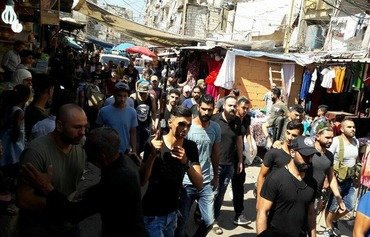Lebanese officials and analysts tell Al-Mashareq they are concerned that UN Security Council Resolution 1701 of 2006, which brought stability to southern Lebanon after years of conflict, has come under threat.
The resolution underpins national security, they said, stressing the importance of continuing to uphold its terms and conditions.
Resolution 1701 called for a full cessation of hostilities south of the Litani River; for the Lebanese government and the UN Interim Force in Lebanon (UNIFIL) "to deploy their forces together throughout the south"; and for the government to extend its control "over all Lebanese territory".
"Hizbullah, which reluctantly accepted the resolution at the time, has benefited from it," former Social Affairs Minister Rashid Derbas told Al-Mashareq, as it offers "reassurance that the area in south Lebanon is in international care".
South Lebanon's population also benefits from the resolution, he said, as it has brought stability to the area, and because the presence of UNIFIL has generated economic activity that boosts the local economy.
Resolution 1701 helped Lebanon assert its sovereignty by deploying its own forces at its land and sea borders, said Lebanese MP Fadi al-Habr of the Phalange Party.
It helped the Lebanese army, with the support of the UN Security Council, to deploy down to the international border in the south, he told Al-Mashareq.
"The resolution entailed the withdrawal of Hizbullah’s weapons from the area south of the Litani River, paving the way towards the collection of those arms and the integration of Hizbullah into the state’s institutions," he told Al-Mashareq.
The goal was for the Lebanese army to be the only party responsible for Lebanon’s protection, he said.
"Hizbullah’s continuing behaviour, according to its regional Iranian [directed] objectives, contradicts Lebanon’s sovereignty and UN resolutions, particularly Resolution 1701," al-Habr said.
The party therefore holds back success in revitalising the Lebanese economy and the possibility of establishing a state of institutions, he said.
Resolution underpins stability
UN Special Co-ordinator for Lebanon Sigrid Kaag has described Resolution 1701 as "vital for Lebanon's stability-security" and stressed that it calls for the disarmament of "all armed groups".
This means "no arms outside control of state", Kaag said in a social media post.
The UN resolution is quite clear in its stipulation that the Lebanese army must be strengthened so it can carry out all its defence tasks, she told An-Nahar newspaper.
"Some parties in Lebanon are selective in the way they adhere to UN Resolution 1701, picking what suits them and rejecting what does not," March 14 general secretariat co-ordinator Fares Soueid told Al-Mashareq.
The resolution, "by the testimony of all the Lebanese, has brought stability to the region since 2006, as evidenced by the fact that the area south of the Litani River is enjoying political and security stability", he said.
Bending the resolution puts the country at risk of losing a very important stabilising factor, he said, describing it as "a real safety belt".
"Multiple violations of Resolution 1701 are still taking place to this day," said international relations professor Shafiq Masri, who lectures at various educational institutions.
What is important, however, "is that it provides an operational mechanism, namely the liaison committee", which submits reports on the violations to the UN Secretary-General and concerned governments, he told Al-Mashareq.
Calls for Lebanon to remain neutral
In a March 11th interview with Sky News Arabia, former Lebanese Justice Minister Ashraf Rifi described Hizbullah’s illegal possession of arms as "a tool for chaos used by Iran in the region in order to achieve its expansionist ambitions".
Iran's ambitions disregard the interests of Lebanon and its sovereignty, stability and relations with other countries in the region, he said.
In its ministerial statement issued in December, the government affirmed its "respect for all international charters and resolutions and its commitment to UN Security Council Resolution 1701 and to supporting UN forces operating in Lebanon".
The statement stressed "the need to dissociate Lebanon from external conflicts" and affirmed its commitment to abide by the Charter of the Arab League, particularly Article 8.
This calls for each member-state to respect the systems of government established in the others as exclusive concerns of those states, the statement said, and to abstain from any action calculated to change established systems of government.
The statement also called for "the adoption of an independent foreign policy based on [serving] Lebanon’s higher interest and respect for international law in order to preserve the country as a space of peace, stability and convergence".
Speaking at a February 17th cabinet meeting, Prime Minister Saad Hariri said that Lebanon is safeguarded by its excellent relations with the Arab world.
Protecting Lebanon from external threats also stems from the policy pursued by the president and government that is based on adhering to international conventions and resolutions, particularly Resolution 1701, he said.

![A Lebanese soldier mans a military post in south Lebanon. [Photo courtesy of the Lebanese Army]](/cnmi_am/images/2017/04/04/7552-lebanon-army-soldier-600_384.jpg)





